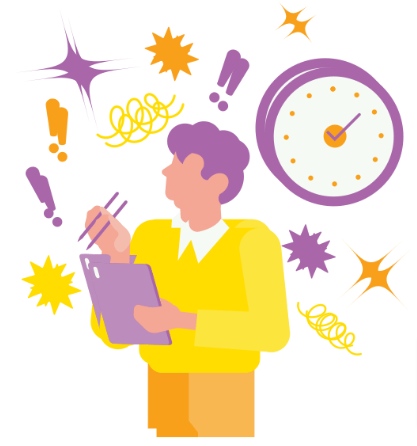
Improving focus and attention in individuals with attention deficit disorders can be challenging, but there are strategies and techniques that can help. Here are some approaches that can be beneficial:
- Medication: Consult with a medical professional who specializes in attention deficit disorders. They may prescribe medications such as stimulants or non-stimulant medications to help manage symptoms and improve focus and attention.
- Behavioral Therapy: Cognitive-behavioral therapy (CBT) and other forms of therapy can provide individuals with skills and strategies to improve focus and attention. Techniques such as goal-setting, self-monitoring, and organization can be taught to enhance concentration and decrease distractions.
- Structured Environment: Creating a structured and organized environment can help individuals with attention deficit disorders stay focused. This includes setting up a designated workspace that is free from distractions, establishing a routine, and maintaining a well-organized and clutter-free space.
- Break Tasks into Manageable Chunks: Breaking down tasks into smaller, more manageable chunks can make them feel less overwhelming. This approach allows for a sense of progress and accomplishment, increasing motivation and focus.
- Time Management Techniques: Utilize time management techniques, such as setting specific goals and deadlines, prioritizing tasks, and using tools like timers or alarms to help manage time effectively. This can assist in maintaining focus on important tasks and reducing procrastination.
- Use Visual Aids and Reminders: Visual aids, such as calendars, to-do lists, and reminder notes, can serve as helpful cues and prompts to stay focused and on track. They provide a visual representation of tasks and deadlines, aiding in memory and organization.
- Minimize Distractions: Reduce environmental distractions as much as possible. This includes turning off or minimizing notifications on electronic devices, finding a quiet workspace, using noise-canceling headphones if needed, and implementing strategies to limit interruptions.
- Exercise and Healthy Lifestyle: Regular exercise has been shown to improve focus and attention. Engaging in physical activities can help reduce restlessness, increase alertness, and enhance overall cognitive function. Additionally, maintaining a healthy lifestyle through proper sleep, nutrition, and stress management can positively impact focus and attention.
- Mindfulness and Meditation: Practicing mindfulness and meditation techniques can improve attention and focus. Mindfulness exercises involve training the mind to stay present and focused on the current moment, reducing distractions and increasing concentration.
- Seek Support and Accommodations: Reach out for support from family, friends, or support groups. Additionally, individuals with attention deficit disorders may benefit from seeking accommodations in academic or work settings, such as extended time for tasks or the use of assistive technologies.
It’s important to note that the effectiveness of these strategies can vary among individuals, and a personalized approach is often necessary. Consulting with a healthcare professional or therapist who specializes in attention deficit disorders can provide further guidance and tailor strategies to specific needs.

